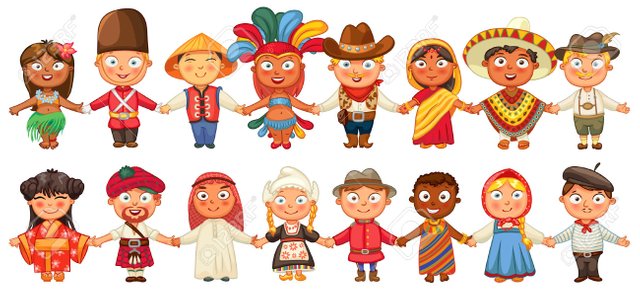Hi Dear Steemitaz Readers!

I will touch on the topic of Developing Cultures in this section. Although this topic may seem somewhat simpler and meaningless, in fact, it is possible to have a long conversation on this topic. Whether it's interesting or uninteresting, this topic is a widespread topic. Find some articles about it. Culture generally deals with situations where a nation, a nation's culture, traditions, their behavioral styles, or what they do not do. No matter what these or other situations, culture is a form of time and time-consuming. Each nation has its own culture. Every nation has its own culture. For example, the hospitality of the Turkish people can be illustrated. Or the value of the Japanese people's hard work and time. Cultures have changed their function and shape over time. If before we think or evaluate Amer- ican, then we can see that there were ape-like people, and there was a local population in the country that used the birds to use their hat for decoration. Looking back on a bit later, we can see that in America, people called cobbles have traced their history with their style of clothing. That is why we can express the role of time in the change of culture. From time to time, cultures can decline or develop. We have seen examples of these barisvous lives. If we show examples from our country of fairytales, then we will see the difference in change. As science grows, as knowledge grows, we can see these differences as people's thinking styles are formed. Almost civilization is essentially developing from them. Changes and shapes. The development and use of science and high technologies, which are developing day by day, are among the top priorities for change. People do everything possible to grow every day. Everyone works in their field and leads to a common society. Science and Culture continue the evolutionary process. This evolutionary process does not stop, it always goes on.
Posted from my blog with SteemPress : http://steemitaz.com/2018/11/24/i-will-touch-on-the-topic-of-developing-cultures-in-this-section/